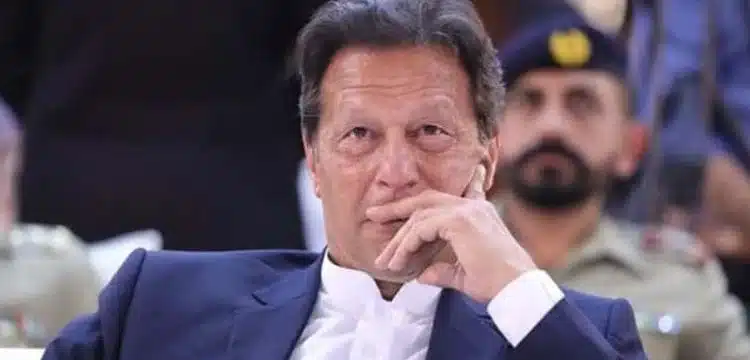[vc_row][vc_column][vc_column_text dp_text_size=”size-4″]In Islamabad, Imran Khan, the former prime minister and founder of Pakistan Tehreek-e-Insaf (PTI), has taken his case to the Supreme Court (SC) after his nomination papers for the upcoming 2024 elections were rejected. Reports indicate that Khan has filed an appeal with the apex court, seeking validation of his eligibility to contest from NA-122 and NA-89 constituencies in the forthcoming elections.
In his petition, Khan argues that the disqualification notice is flawed under Article 63(1)H, contending that disqualification necessitates a moral offense. He urges the Supreme Court to invalidate the decision of the election tribunal, asserting that his conviction in the Toshakhana case does not hinge on moral grounds.
Read more: LHC Rejects Imran Khans Plea On Nomination Papers Dismissal
Earlier, the Lahore High Court (LHC) had upheld the decision of the Election Appellate Tribunal to dismiss appeals by Imran Khan and other PTI leaders challenging the rejection of their nomination papers by the returning officers (ROs) for the upcoming general elections.
Imran Khan had initially submitted his nomination papers for NA-122 Lahore and NA-89 Mianwali, both of which were rejected by the respective ROs. Subsequently, he contested these rulings before the election appellate tribunals, where his appeals faced a similar outcome.
It is crucial to note that on December 30, the Election Commission of Pakistan (ECP) rejected Imran Khan’s nomination papers for two National Assembly constituencies – NA-122 (Lahore) and NA-89 (Mianwali), citing his prior conviction.
Imran Khan’s decision to challenge the rejection of his nomination papers reflects his determination to assert his eligibility and contest the upcoming elections. The legal proceedings, now elevated to the Supreme Court, are expected to delve into the nuances of the disqualification notice and the interpretation of moral grounds for disqualification under Article 63(1)H.
The rejection of nomination papers based on a prior conviction adds complexity to the case, with Imran Khan seeking a nuanced interpretation of the legal and moral aspects involved. The Supreme Court’s decision in this matter will carry significant implications not only for Imran Khan’s political future but also for the broader understanding of disqualification criteria in the context of electoral processes.
As the legal battle unfolds, attention will be drawn to the arguments presented by both sides, the interpretation of relevant constitutional provisions, and the precedent-setting nature of the Supreme Court’s decision. The outcome of this case will shape the trajectory of Imran Khan’s participation in the upcoming elections and contribute to the evolving jurisprudence surrounding the eligibility criteria for political candidates in Pakistan.[/vc_column_text][/vc_column][/vc_row]











